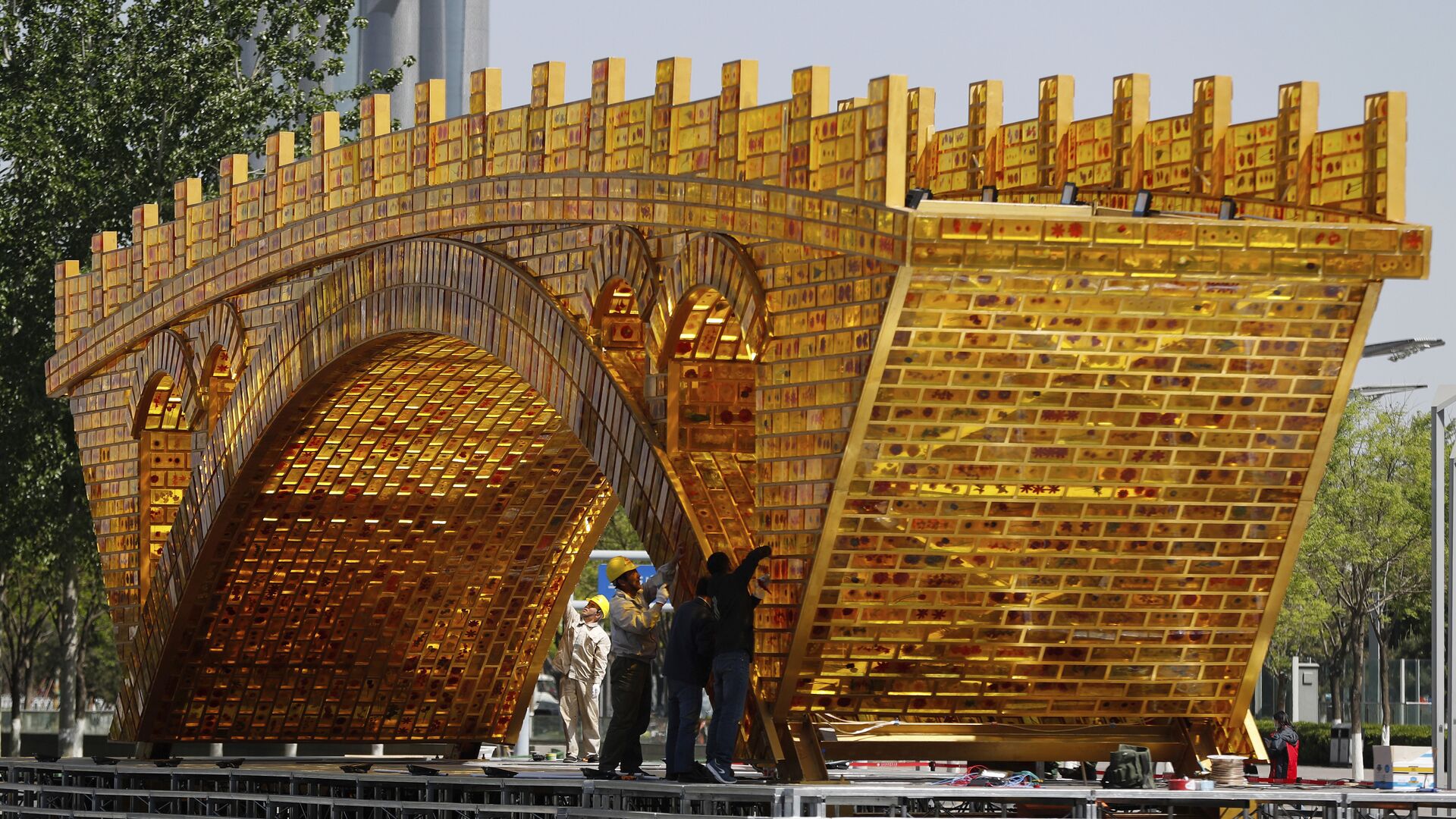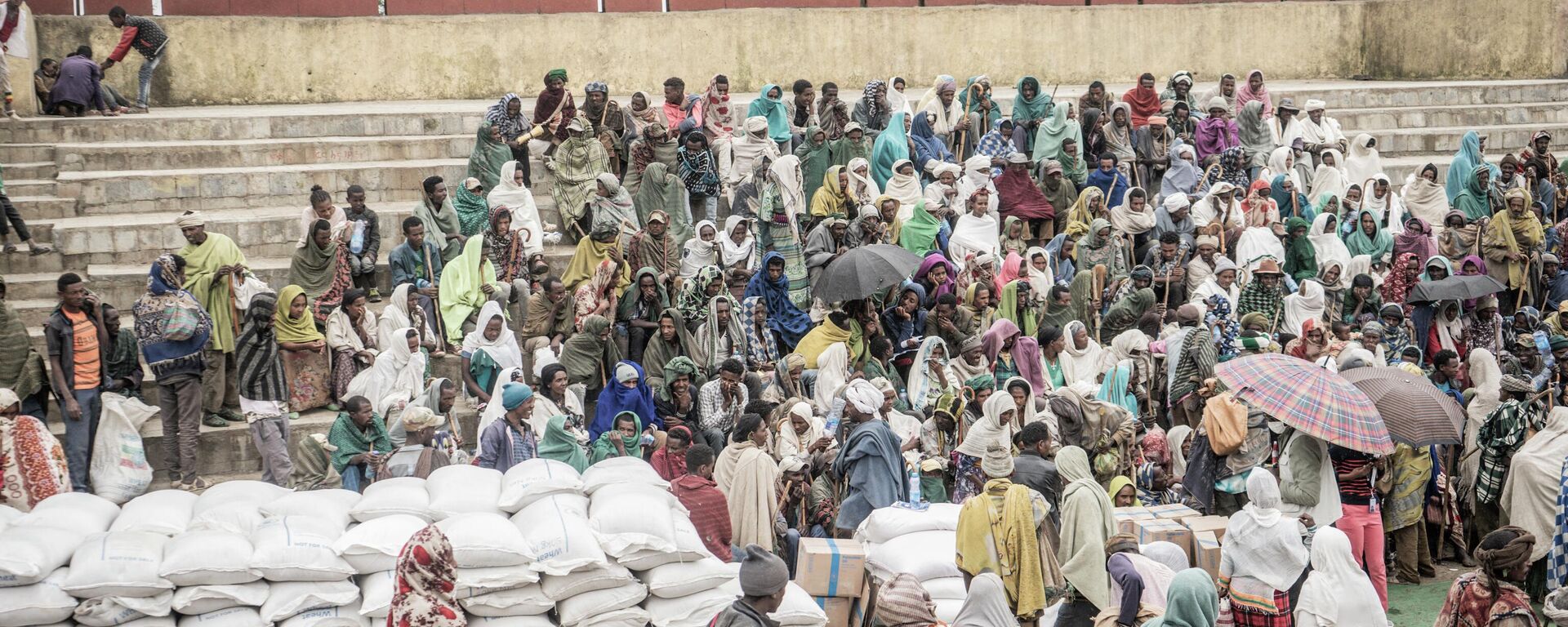Take Two: Why G7's Program for Developing Countries is Still No Match for China's Belt & Road
04:55 GMT 28.06.2022 (Updated: 11:52 GMT 08.08.2022)

© AP Photo / Andy Wong
Subscribe
The G7 on 26 June re-launched its previous Build Back Better World program to provide infrastructure funds to poor and developing nations under a new name, the Global Investment and Infrastructure Partnership. The project aims to compete with China's Belt and Road Initiative kicked off by Beijing in 2013.
The Build Back Better World (B3W) program was pompously announced by the club of seven developed nations to counter China's Belt and Road at the G7 Summit in Cornwall in July 2021. However, little had been heard of the G7's endeavor since then. In June 2022, the Group of Seven decided to breathe new life into the project.
"So far, America has failed to build momentum on its plan to Build Back a Better World," says Francesco Sisci, a Beijing-based China expert, author, and columnist. "However, with this new G7 plan, which includes other countries, this momentum could start to be built. It is a question mark. Nobody is sure until things are realized. But you cannot just underestimate and dismiss this plan, because there is a large commitment of many countries with a large economy and this plan could make big sense."
The G7's grand design envisages laying a secure sub-sea telecommunications cable that will connect Singapore to France through Egypt and the Horn of Africa; creating a COVID-19 vaccine plant in Senegal; expanding solar projects in Angola, including solar mini-grids and home power grids; and establishing an innovative modular nuclear reactor plant in Romania, among other issues.
The US president pledged to mobilize $200 billion in investments in global infrastructure projects over the next five years. The overall investment, including G7 member states and private capital, is expected to reach $600 billion.
"With two competing plans - size matters, at the end of the day," says Sisci. "That is, China may be able to immediately finalize a lot of money in a short time in a number of projects. The G7 countries could be slower, but eventually they could build up momentum and they could channel much more money much more effectively, perhaps, in a much larger number of projects which could stifle Chinese projects."
Sisci suggests that the club of developed capitalist countries "may end up being more effective in many ways [than China], a smaller non-capitalist country."
"China, but also Russia, by far, don't have the size, the gravitas to oppose even a divided G7, which is coming together because of this opposition to China or Russia-driven projects," he notes.
G7 Economic & Geopolitical Hurdles
However, some other observers express skepticism over the ability of the US and G7 to implement the project given record-high inflation and cost of living crisis currently engulfing the states. The US, British and European central banks are struggling to tame skyrocketing inflation by raising interest rates to reduce demand, which is prompting recession fears.
"Washington claims they are going to be sending over $200 billion. But where's the money coming from and how is it going to be really used?" asks Thomas W. Pauken II, the author of "US vs China: From Trade War to Reciprocal Deal," a consultant on Asia-Pacific affairs and a geopolitical commentator.
He notes that previously the US Senate voted Biden's landmark Build Back Better initiative down, and for good reason, as Republican congressmen feared that the Democratic administration's spending spree would fan inflation and increase an already bloated national debt.
Pauken also expresses bewilderment over the G7's apparent readiness to embark on the bold international project at a time when the group is involved in the Ukraine crisis with the UK trying to keep the military conflict dragging on. "I mean, it's laughable that they have to think about [competing with] China at this time when they're on the brink of a major war in Europe," the commentator remarks.
Meanwhile, the G7's Global Investment and Infrastructure Partnership cannot be regarded so far as a viable alternative to the Beijing-led Belt and Road Initiative that has been implemented for slightly less than a decade, according to Pauken.
"First of all, [the G7] actually need[s] to make these projects work," says the geopolitical commentator. "Other than that solar plant in Angola, I don't see any of these initiatives really working."
In particular, China invested almost $59.5 billion in its comprehensive infrastructure project in 2021 alone. When it comes to crucial elements of the project, the West appears to be lagging behind. While the G7 is still considering building a subsea cable linking Europe and Southeast Asia, China kicked off its Digital Silk Road (DSR) almost seven years ago. The DSR's backbone is the Pakistan and East Africa Connecting Europe (PEACE), a 9,300 mile long subsea cable network meant to tie Asia, Africa, and Europe together. The network is designed to transmit over 16Tbps per fibre pair with its Mediterranean section going from Egypt to France having already been laid.
Are Emerging Economies Interested in the G7 Agenda?
There is yet another problem as to how to make these Western projects attractive for Global South nations, the Asia Pacific expert continues. In particular, the G7 has been pushing ahead with a climate change agenda and the plan to cut carbon emissions, which is not relevant for the majority of third-world states which are still reliant on cheaper and more reliable fossil fuels and coal plants, he notes.
"You also have to deal with auditing issues as well as the so-called climate change consultants who go on the ground and on site," he says. "You have to prove that those infrastructure projects are not causing much of a carbon footprint. But most of the major infrastructure does require a big carbon footprint, especially in the emerging markets, because they don't have the same equipment or they don't have the same standards or labor laws as they would have in Western Europe or the US."
Many emerging economies, including African countries, are beginning to have a growing frustration with the US and Europe, according to Pauken. The reality is that Africans and many of the emerging markets want to focus on economic stuff, he notes. However, when the US officials come in, they're talking about climate change or gender equity, and this is not as interesting to developing nations, the commentator emphasizes.
"[Developing nations] want help on improving their agricultural production levels and boosting their energy capacity, which the Russians and the Chinese have been doing," Pauken notes.
Given all of the above, it is unlikely that the G7's Global Investment and Infrastructure Partnership initiative is going to actually happen, argues the geopolitical commentator.
"They're rebranding a failed policy, thinking it might work by using new names and new mergers. Last time it was separate between the EU and separate between the US and they somehow think that if you combine the two failed projects into one, that this will somehow succeed. That's not going to work in the real world," Pauken concludes.






